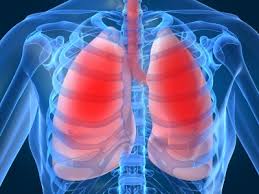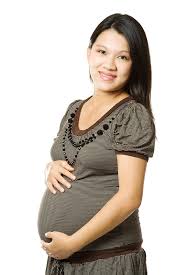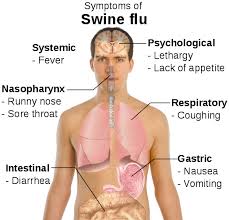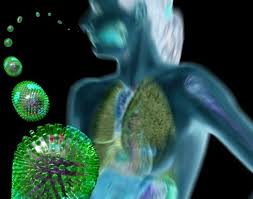 KUCHING, August 10, 2009: Most Influenza A (H1N1) patients recover fully without requiring medical attention and antiviral if they have uncomplicated febrile respiratory illness.
KUCHING, August 10, 2009: Most Influenza A (H1N1) patients recover fully without requiring medical attention and antiviral if they have uncomplicated febrile respiratory illness.
 Those infected with the virus, particularly with mild symptoms, should rest at home until they (symptoms) disappeared, said infectious diseases expert at Sarawak General Hospital Dr Chua Hock Hin.
Those infected with the virus, particularly with mild symptoms, should rest at home until they (symptoms) disappeared, said infectious diseases expert at Sarawak General Hospital Dr Chua Hock Hin.
“There is no need for patients to rush to clinic or hospital because they will recover in a few days,” he said, adding that mild illness would get symptomatic treatment and home care advice.
According to the Ministry of Health’s policy on the H1N1 virus, Dr Chua said only those with moderate to severe illness would be tested.
 “The test, real-time RT-PCR for H1N1 is costly. It costs about RM880 each,” he told a seminar on Influenza A (H1N1) organised by Sarawak United People’s Party (Pending branch) at Kenyalang Park Community Association hall here yesterday.
“The test, real-time RT-PCR for H1N1 is costly. It costs about RM880 each,” he told a seminar on Influenza A (H1N1) organised by Sarawak United People’s Party (Pending branch) at Kenyalang Park Community Association hall here yesterday.
Pointing out that everyone shouldered the responsibility of stopping the spread of H1N1 virus, Dr Chua said those having flu or similar symptoms should initiate self-quarantine and avoid social gathering.
 “If you have a flu, be extra mindful and keep a distance from people around to prevent from spreading the virus.”
“If you have a flu, be extra mindful and keep a distance from people around to prevent from spreading the virus.”
 As of Aug 8, he said Malaysia registered 1,578 positive cases of H1N1 with 64 per cent local transmissions and the rest imported while 18 deaths were recorded with a majority of them caused by pneumonia.
As of Aug 8, he said Malaysia registered 1,578 positive cases of H1N1 with 64 per cent local transmissions and the rest imported while 18 deaths were recorded with a majority of them caused by pneumonia.
He said the local communities must be enlightened on what H1N1 was all about, how it was transmitted, the complications as well as the vulnerable groups.
 He feared that the death toll would continue to rise if there was a lack of public awareness while some people remained ignorant of the risk of the virus.
He feared that the death toll would continue to rise if there was a lack of public awareness while some people remained ignorant of the risk of the virus.

 The incubation period of H1N1 virus was between one and seven days while the infectivity period was a day before the onset of symptoms to seven days after onset of symptoms or until resolution of symptoms, he said.
The incubation period of H1N1 virus was between one and seven days while the infectivity period was a day before the onset of symptoms to seven days after onset of symptoms or until resolution of symptoms, he said.
 He added that those aged from five to 45 years, especially pregnant women and obese individuals, were more susceptible to the virus.
He added that those aged from five to 45 years, especially pregnant women and obese individuals, were more susceptible to the virus.
He added that the vaccine would be made available in Malaysia in December.
 Symptoms of being infected with H1N1 virus are high fever (of more than 37.8 Celsius), cough, sore throat, runny nose, chills, headache, myalgia, fatigue, diarrhoea and vomiting.
Symptoms of being infected with H1N1 virus are high fever (of more than 37.8 Celsius), cough, sore throat, runny nose, chills, headache, myalgia, fatigue, diarrhoea and vomiting.
A more severe form includes pneumonia, myocarditis and encephalitis.
Dr Chua cautioned that those with low immune system were exposed to risk of secondary bacterial infection, which was one of the complications for H1N1.
“The virus will exacerbate underlying chronic medical conditions such as asthma. Other complications include pneumonia, myocarditis leading to heart failure or arrhythmia.”
Pregnant women of second and third trimester, equivalent to 14 weeks of pregnancy, and low immunity people (aged below five and above 65), cancer patients, kidney failure patients, transplant patients and those on steroid, having heart or lung problems were more likely to get complications, he said.
 H1N1 virus can stay two to eight hours, he said, adding that it could be transmitted through cough and sneezes.
H1N1 virus can stay two to eight hours, he said, adding that it could be transmitted through cough and sneezes.
He thus advised people to observe and practise a six-foot distance from others, particularly those having flu, coughing or sneezing, and to practise good personal hygiene.
 “Wash your hands as many times as possible, avoid crowded places if you are unwell and put on a surgical masks over your mouth and nose.
“Wash your hands as many times as possible, avoid crowded places if you are unwell and put on a surgical masks over your mouth and nose.
“Do not smoke and eat a balanced diet with plenty of fruit and vegetables. Practise using a serving spoon when sharing food at meal times,” he said.
Tiada ulasan:
Catat Ulasan